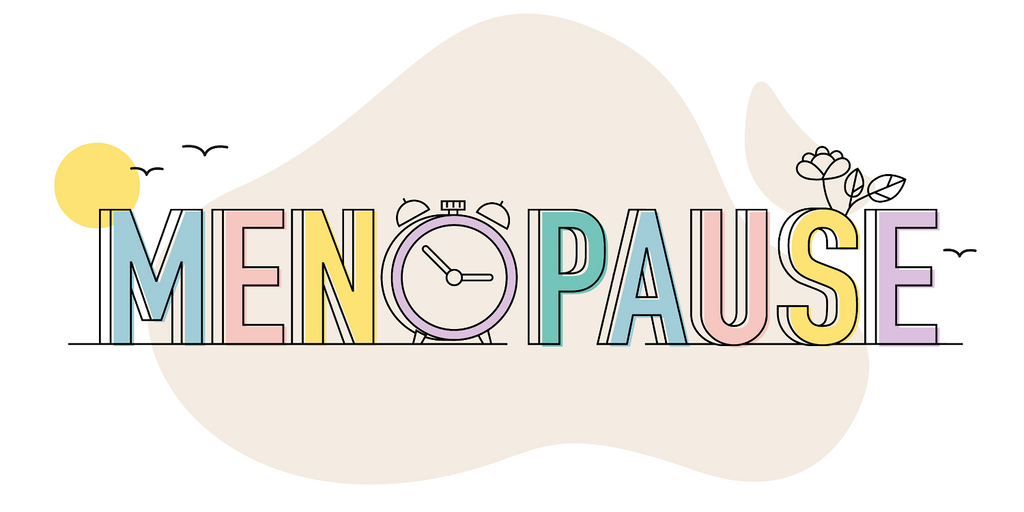
Manage Your Menopause Naturally: A Guide to Navigating the Change with Grace
Menopause, a natural phase in every woman’s life, can bring about a range of physical and emotional changes. It’s a time of transformation, not just biologically but also in how we perceive ourselves and our well-being. While it’s common to hear about medical interventions, many women are exploring natural ways to manage menopause. If you’re looking to embrace this stage of life with a holistic approach, you’re in the right place. Let’s dive into how you can manage your menopause naturally.
Understanding Menopause
Before we explore natural remedies, it’s important to understand what menopause is. Menopause marks the end of a woman’s menstrual cycles, typically occurring between the ages of 45 and 55. It’s diagnosed after 12 consecutive months without a period. The transition, known as perimenopause, can last several years and often brings symptoms such as:
- Hot flushes
- Night sweats
- Mood swings
- Weight gain
- Sleep disturbances
- Decreased bone density
While these symptoms can be challenging, they’re a natural part of ageing, and with the right strategies, you can navigate them gracefully.
1. Embrace a Balanced Diet
Your diet plays a crucial role in managing menopause symptoms. Focus on nutrient-rich foods that support hormonal balance and overall health. Here are some tips:
- Incorporate Phytoestrogens: These plant-based compounds mimic oestrogen and can help alleviate symptoms. Foods like soy, flaxseeds, and chickpeas are excellent sources.
- Boost Calcium and Vitamin D: Essential for maintaining bone health, these nutrients can be found in dairy products, leafy greens, and fortified foods.
- Stay Hydrated: Hormonal changes can lead to dryness, so aim for at least 2 litres of water daily.
- Limit Sugars and Processed Foods: These can exacerbate mood swings and contribute to weight gain.
2. Exercise Regularly
Physical activity is not just about staying fit; it’s a powerful way to combat menopause symptoms. Regular exercise can:
- Improve mood and reduce anxiety
- Enhance sleep quality
- Boost energy levels
- Strengthen bones and muscles
Incorporate a mix of aerobic exercises, strength training, and flexibility practices like yoga or Pilates. Aim for at least 30 minutes of moderate activity most days of the week.
3. Harness the Power of Herbal Remedies
Nature has a treasure trove of herbs that can ease menopause symptoms. Some popular options include:
- Black Cohosh: Known for reducing hot flushes and night sweats.
- Red Clover: A source of phytoestrogens that may help balance hormones.
- Ashwagandha: Supports stress reduction and promotes restful sleep.
- Evening Primrose Oil: Helps with mood swings and skin health.
Always consult a healthcare professional before starting any herbal supplements to ensure they’re right for you.
4. Prioritise Sleep Hygiene
Sleep disturbances are a common complaint during menopause. To improve your sleep quality:
- Maintain a consistent sleep schedule.
- Create a relaxing bedtime routine, such as reading or taking a warm bath.
- Keep your bedroom cool and comfortable.
- Limit caffeine and alcohol intake, especially in the evening.
If sleep problems persist, consider natural aids like magnesium supplements or herbal teas with chamomile or valerian root.
5. Practice Stress Management
Hormonal changes can amplify stress, making it essential to adopt effective stress-management techniques. Consider the following:
- Mindfulness and Meditation:Daily mindfulness practices can reduce anxiety and promote a sense of calm.
- Deep Breathing Exercises:Simple breathing techniques can quickly lower stress levels.
- Creative Outlets:Engage in activities you enjoy, like painting, gardening, or writing.

6. Build a Support Network
Menopause can feel isolating, but it doesn’t have to be. Surround yourself with supportive friends, family, or join a menopause support group. Sharing experiences and advice can provide comfort and valuable insights.
7. Explore Acupuncture
This ancient Chinese therapy has been shown to help with hot flushes, mood swings, and sleep issues. Acupuncture works by balancing the body’s energy flow, promoting overall well-being.
8. Stay Open to Change
Menopause is an opportunity to reassess your lifestyle and priorities. Embrace this time as a chance to:
- Explore new hobbies or interests.
- Focus on self-care.
- Reconnect with your body and mind.
9. Consider Natural Hormone Replacement Therapy (HRT)
Bioidentical hormones derived from natural sources can be an alternative to synthetic HRT. They’re tailored to mimic your body’s hormones closely. However, it’s crucial to discuss this option with a qualified practitioner to ensure safety and effectiveness.
10. Maintain Regular Health Check-Ups
Finally, stay proactive about your health by scheduling regular check-ups. Screenings for bone density, heart health, and overall well-being are essential during this phase of life. Your healthcare provider can also offer personalised advice tailored to your needs.
Embrace Menopause Naturally and Confidently
Menopause is not an end but a new beginning—a chance to prioritise yourself and embrace a healthier, more balanced lifestyle. By adopting these natural strategies, you can manage symptoms effectively and thrive during this transformative stage. Remember, every woman’s journey is unique, so find what works best for you and celebrate this new chapter with confidence.

